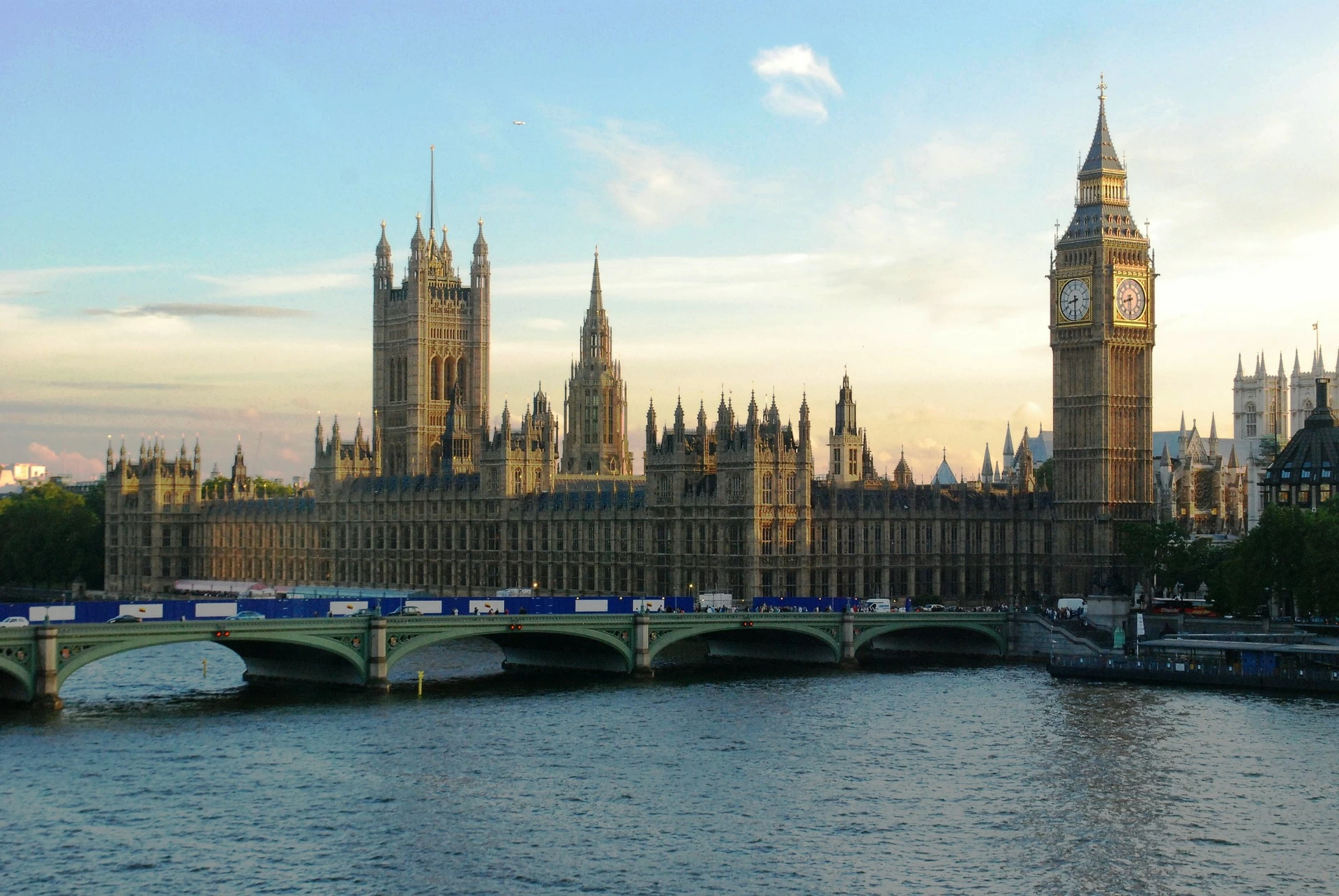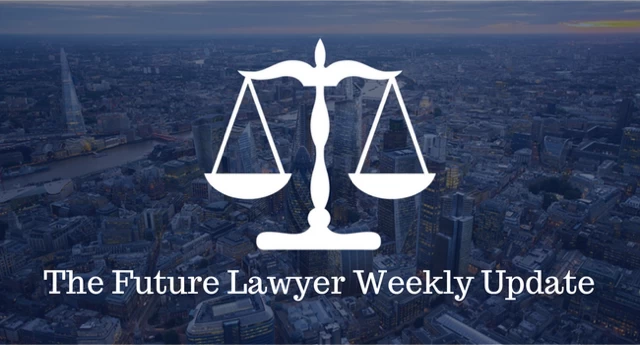
Clear the Lobby: What laws are MPs voting on this week (w/c 16th December)?
December 16, 2019
Commercial Awareness Update – W/C 23rd December 2019
December 23, 2019The round-up of the stories that a budding Student Lawyer should be aware of this week. Sign up here to get these updates in your inbox every week.
Human Rights
Mander’s win race discrimination case over adoption
Reported by Ellena Mottram
A Judge has ruled a couple were discriminated against by not being allowed to adopt a child and has awarded them £120,000 in damages.
Sandeep and Reena Mander were rejected from their local adoption service, Adopt Berkshire, three years ago. Their application to join the register was turned down because of their Indian ancestry and they were told they would have better chances of adopting a child if they looked to adopt in India or Pakistan.
Following their application, they were told that only white children were in need and the adoption service would give preference to British or European applicants meaning the couple were not put down as potential adopters.
As a result of their application failure, the couple attempted to have the decision reversed by making a formal complaint to their local council. This however did not achieve the desired result, so the couple sued the Royal Borough of Windsor and Maidenhead for discrimination. This case was supported by their MP, Theresa May, who wrote a letter to the council and also by the Equality and Human Rights Commission who funded the case.
Despite this support, and despite the decision clearly being in the fact of the Children and Families Act 2014 which ended the practice of allowing only ethnic matches for adopted children, the council stuck to its original decision.
Upon hearing the case, Judge Melissa Clarke stated the couple had been discriminated against on the grounds of race. Judge Clarke stated the couple should not have been barred from joining the approved adopters register because of where their parents were born holding the council’s decision amounted to direct discrimination on the grounds of race. Judge Clarke stated ‘Mr and Mrs Mander…received less favourable treatment than would a comparable couple of a different ethnicity’.
The Judge awarded damages totalling £120,000, comprised of general damages of £29,454.42 each and special damages totalling £60,013.43. The special damages were in relation to the cost of adopting a child overseas, an option the couple had been forced to pursue due to the decision of the
council.
Whilst the judge agreed the Claimants had been directly discriminated against on the grounds of their race, it was held they had not been discriminated against under article 12 of the European Convention on Human Rights which concerns the right to found a family.
It has been highlighted by the Couples lawyers this ruling marks a landmark ruling in the finding of racial discrimination in adoption law, highlighting that adoption services should not be treating people differently where they offer loving homes on the grounds of where they come from or where their parents come from.
Land Law
Update on recent Supreme Court rulings on ‘Village Green’
Reported by Jutha Cheewat
The Supreme Court has allowed appeals by Lancashire County Council and NHS Property Services by the majority of 3 to 2 in R (on the application of Lancashire County Council) (Appellant) v Secretary of State for the Environment, Food and Rural Affairs and another (Respondents) R (on the application of NHS Property Services Ltd) (Appellant) v Surrey County Council and another (Respondents) [2019] UKSC 58.
The issue was on the statutory incompatibility for an application to register land as a town or village green, where the land is held by the public authority for statutory purposes. The decision to register was upheld in both cases.
According to the Guardian, the piece of land in Lancashire was not the most attractive but the most important for the locals. Bebbington, one of the villagers, said that “It was our playground, it was where we went and climbed trees, used the running track from the nearby school, played rounders, explored, kissed people in the bushes, drank cider, did all the things that people get up to in green spaces.”
The Commons Act 2006 allows for an option to register land as village green if it has been used solely for the recreational purpose for a minimum of 20 years. If successful, land would be protected from development. However, in 2013, the Growth and Infrastructure Act states that a piece of land that is subjected to a planning application cannot be granted a status of a village green.
Lord Carnwath and Lord Sales gave the majority judgement stated that the central issue left is the interpretation of the Commons Act 2006 related to R (Newhaven Port & Properties Ltd) v East Sussex County Council [2015] UKSC 7.
The majority agreed that “On a true reading of the majority judgment in Newhaven …, the circumstances in each of these cases are such that there is an incompatibility between the statutory purposes for which the land is held and use of that land as a town or village green. This has the result that the provisions of the 2006 Act are, as a matter of the construction of that Act, not applicable in relation to it.”
In addition, their interpretation of the Newhaven test “was not whether the land had been allocated by statute for particular purposes, but rather whether it had been acquired by the public authority pursuant to its statutory powers and was held for the purposes of those powers.”
Bebbington added that “This ruling reflects what is going on at a broader level in our society… Every bit of green space has to be available for development because suddenly land is gold, especially to local authorities that do not have any money.”
You can find more here or here.
Medical Law
UK Supreme Court’s case: a controversy in medical indemnisation
Reported by Emma Ducroix
UK Supreme Court hears case of woman left infertile after cervical cancer treatment.
Whittington hospital NHS trust in north London has admitted negligently failing to detect signs of cervical cancer for more than four years. That oversight led to the woman, identified only as XX, developing highly invasive malignancy, which required chemo-radiotherapy treatment and left her infertile at the age of 29.
She was awarded £580,000 in damages but the high court refused to make further payments to cover the costs of four surrogacies in California because such commercial arrangements are illegal in the UK.
XX, now 36, has said one of her “central ambitions in life” is to have a family and that, despite the “profound, distressing and life-altering injuries” caused by her treatment, her loss of fertility is her “major concern”.
Her lawyers have argued that she should be granted the costs of surrogacy in California, where the practice is legal and binding, saying that “in 2019, the civil courts should no longer have any role in censuring a woman’s reproductive choice”.
The NHS should not have to pay for patients to have surrogate children through commercial agreements in the US, the Supreme Court has been told in a controversial medical compensation case.
Last December, the court of appeal overturned the high court ruling declaring that the patient was entitled to an additional £560,000 to cover the cost of having children with commercial surrogates in the US.
At the Supreme Court on Monday, the Whittington trust appealed against that decision, maintaining that commercial surrogacy is “contrary to public policy”. The case is the last that Lady Hale, the president of the Supreme Court, will hear before her retirement next month.
Opening the trust’s appeal, Lord Faulks QC said: “This is a very sad case.” XX should not be entitled to “the cost of obtaining a child through surrogacy, whether that should be by way of altruistic or commercial surrogacy in the UK or abroad.
“Whatever the view the court takes about altruistic surrogacy, there should be no award of damages for commercial surrogacy since an award would be contrary to public policy.”
There had been a significant shift in favour of surrogacy in the approach of parliament, government and society in the past 20 years, he said, and it was almost certain the family courts would facilitate any such surrogacy by granting an order confirming that XX and her partner were the surrogate children’s parents.
In those circumstances, Johnston added, “consistency in the application of the law strongly supports rejecting this attempt to censure Ms XX’s reproductive choices and bar her from the full compensation to which she would otherwise be entitled”.
She had very limited opportunities to have a baby from her own eggs, with each attempt facing “a significant risk of failure”, he added.
Johnston also said that “in the UK, where surrogacy arrangements are unenforceable, there is the additional risk that the surrogate mother would keep Ms XX’s baby”.
The Supreme Court is hearing the case on Monday and Tuesday. It is is expected to reserve judgment until the new year.
You can find more here.
Criminal Law
Bail for a prisoner charged in a murder case
Reported by Emma Ducroix
A Mississippi man who has been tried six times in the same murder case will be allowed to post bail and leave custody for the first time in 22 years. Curtis Flowers, 49, was sentenced to death in his sixth trial in 2010.
In July 1996, four people were shot dead in a furniture store in the north Mississippi town of Winona. Two trials involving Flowers ended in a mistrial. He was convicted four times. All four convictions were overturned.
In the sixth trial, in 2010, Flowers was sentenced to death. Earlier this year the US supreme court overturned that conviction, finding prosecutors had shown an unconstitutional pattern of excluding African American jurors.
During a hearing on Monday, a judge granted a bond request made by attorneys for Curtis Flowers. Bond was set at $250,000. The circuit judge Joseph Loper said Flowers would have to wear an electronic monitor while out of custody. It was “troubling”, he said, that prosecutors had not responded to the defence motion to drop the charges against Flowers.
Flowers’s attorney, Rob McDuff, has argued that Mississippi law requires bail after two capital murder mistrials.
“This case is unprecedented in the history of the American legal system,” McDuff said during the hearing which led to Flowers’s bail. Attorneys are expected to argue at another hearing that the judge should dismiss the charges all together.
Even though Flowers’s last conviction was overturned, the original murder indictment is still active.
The four people killed on 16 July 1996 were store owner Bertha Tardy, 59, and three employees: 45-year-old Carmen Rigby, 42-year-old Robert Golden and 16-year-old Derrick “Bobo” Stewart.
A daughter of Tardy was among spectators in the courtroom on Monday. She sat across the aisle and one row back from Flowers’ daughter Crystal Ghoston. Flowers appeared wearing a dark suit, white shirt and black-and-white striped tie.
Ghoston, 26, said she had seen her father only once since he was imprisoned, about 10 years ago, and that even then she could only talk to him through a reinforced window. She said they wrote letters to each other and talked on the phone every few weeks, and that he wanted to meet her two-year-old daughter, who calls him “Paw-Paw”.
Supporters of Flowers hugged after court was dismissed.
You can find out more here.




